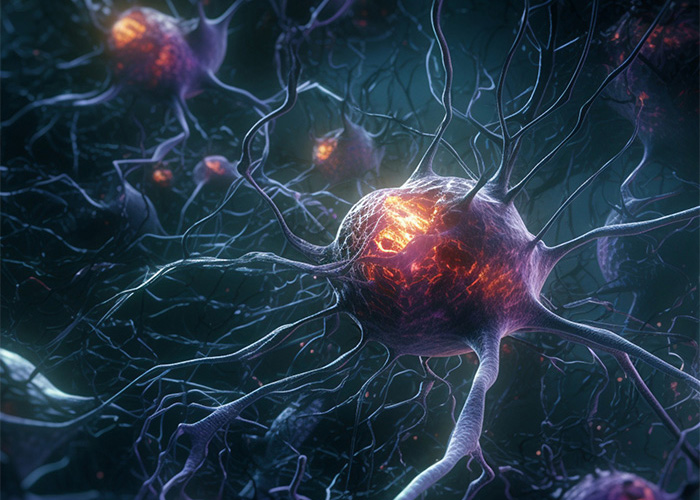The Surprising Secrets of Our Motivation
December 12, 2023
Neurons, as illustrated here, transmit signals by releasing small molecules called neurotransmitters. UC San Diego researchers are shedding new light on what neurotransmitters do what. Photo credit:Mirerek8/Pixabay
Motivation and avoidance are intricately linked in the human brain. When you either feel motivated or want to avoid something, a cascade of chemical messengers called neurotransmitters tell your brain how to respond. These tiny messengers act as the brain's communication system, influencing whether you should go after rewards or steer clear of potential threats. It's like a complex conversation happening in your head at all times.
Scientists at University of California San Diego School of Medicine have shed new light on how two neurotransmitters, dopamine and glutamate, interact to help us decide what to do and what to avoid. In a study published December 11, 2023 in Neuron, they found that some neurons in the brain’s reward system release both of these neurotransmitters, and that they can act like a switch to help the brain either seek rewards or stay out of harm’s way.
The researchers used a technique called optogenetics, which involves shining light onto neurons to stimulate them and observing the response in mice. They discovered that when neurons in the brain’s reward system were stimulated, mice not only sought rewards but also avoided negative stimuli.
The researchers then used gene editing to selectively interfere with each of these neurotransmitters. When they blocked glutamate release, the mice stopped seeking rewards, but they still engaged in avoidant behaviors. Conversely, when they deleted dopamine release, the mice still sought rewards but lost their avoidance behavior.
“It's like having one brain switch that toggles between seeking rewards or steering clear of trouble,” said Shelley Warlow, PhD a postdoctoral researcher in the Hnasko Lab at UC San Diego School of Medicine. “Understanding how the brain switches between reward and avoidance paves the way for a better understanding of ourselves, what drives us, and how we can treat health issues that affect motivated behavior such as addiction.”
Read the full paper: https://doi.org/10.1016/j.neuron.2023.11.002
— Miles Martin
Senior Communications and Media Relations Manager, UC San Diego Health Sciences

